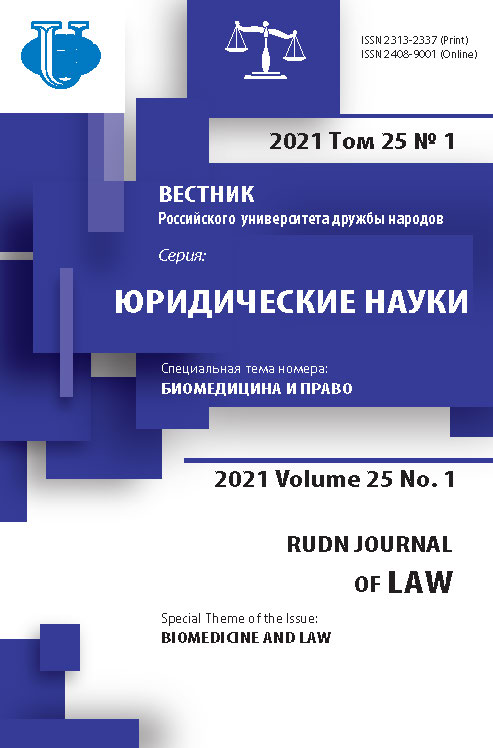Biomedicine and Law: mutual trust and perspectives
- Authors: Yastrebov O.A.1
-
Affiliations:
- Peoples' Friendship University of Russia (RUDN University)
- Issue: Vol 25, No 1 (2021): BIOMEDICINE AND LAW
- Pages: 9-13
- Section: GENETICS AND LAW
- URL: https://journals.rudn.ru/law/article/view/26033
- DOI: https://doi.org/10.22363/2313-2337-2021-25-1-9-13
- ID: 26033
Cite item
Full Text
Abstract
The publication raises issues of interaction of rapidly developing areas of bio-medicine and international legal standards, and national legislation of states. Attention is focused on the need for legal guarantees in the field of editing the genome of living organisms, in vitro fertilization, etc. It is proposed to form a uni-form attitude and establish the boundaries of what is permissible in the field of genetic practice so that the situation does not get out of the control of the human mind.
About the authors
Oleg A. Yastrebov
Peoples' Friendship University of Russia (RUDN University)
Author for correspondence.
Email: yastrebov_oa@rudn.university
Doctor of Legal Sciences, Doctor of Economic Sciences, Full Professor, Rector, Editor-in-chief of the RUDN Journal of law, Peoples' Friendship University of Russia (RUDN University)
6 Miklukho-Maklaya str., Moscow, 117198, Russian FederationReferences
Supplementary files















